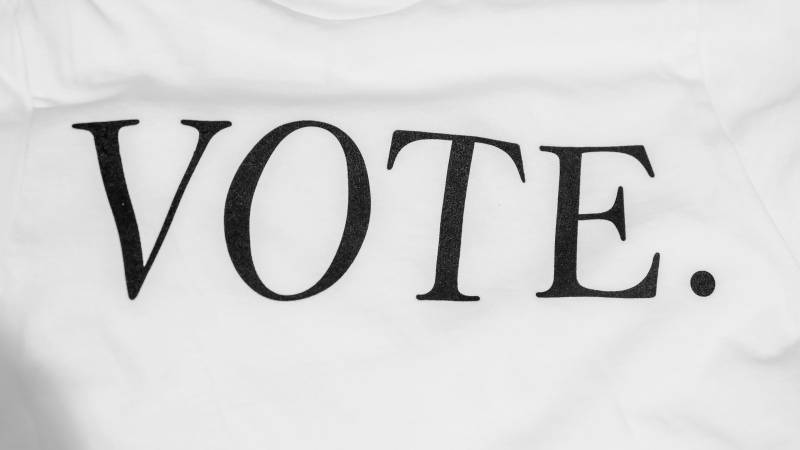 |
|
 |
|
 |
|
 |
|
 |
|
 |
|
 |
|
 |
|
 |
|
 |
|
 |
|
 |
|
 |
|
 |
|
 |
|
Cryptocurrency News Articles
Montana House Rejects Bill to Invest State Reserves in Bitcoin (BTC)
Feb 24, 2025 at 07:06 pm
The Montana House of Representatives voted against House Bill No. 429, a proposal to establish Bitcoin (BTC) as a state reserve asset.

Key Takeaways:
Bipartisan Opposition Over Financial Risks
The Montana House voted 41-59 against House Bill No. 429, with bipartisan concerns about the financial risks of investing in volatile digital assets like Bitcoin. Lawmakers were wary of endangering public funds through speculative investments.
Overview
The Montana House of Representatives voted against a bill that would have allowed the state to investの一部counterpart funds in Bitcoin (BTC). House Bill No. 429 was ultimately rejected in a 41-59 vote on Wednesday.
The bill proposed establishing a special revenue account for state investments in precious metals, stablecoins, and digital assets with an average market cap of over $750 billion in the past year – a threshold currently met only by BTC.
Many Republicans opposed the bill, arguing that it would permit the state’s investment board to engage in speculative ventures, potentially jeopardising public funds. Representative Bill Mercer spoke out against allowing the Board of Investments to invest Montana’s funds in cryptocurrencies and NFTs. “I did not come here to do that,” Mercer said.
Proponents of the bill argued that diversifying into assets like BTC could enhance returns on taxpayer funds. Representative Lee Demming highlighted the state’s obligation to maximize returns and suggested that investing in digital assets could be a strategy for doing so. “If we’re going to keep the taxpayer’s money, I think we owe it to the taxpayers to get as high a return on that money that’s sitting in there, either that or you give it right back to them, so I’m going to vote on this bill for that reason,” Demming said.
Representative Steve Fitzpatrick noted that the board has a lot of money sitting in the bank and that investing in precious metals and digital assets would be an effective use of those funds. “We can make a return to the taxpayer, and ultimately, that would allow us to give more money back, cut taxes, and provide the fiscal relief that people are looking for,” Fitzpatrick said.
In contrast, opponents like Representative Steven Kelly highlighted cryptocurrencies’ inherent volatility and speculative nature, advocating for more conservative investment approaches to safeguard public resources. “It’s still taxpayer money, and we’re responsible for it, and we need to protect it because these types of investments are way too risky,” Kelly said.
The rejection of Montana’s BTC reserve bill aligns with a broader trend of cautious legislative approaches toward crypto investments at the state level. While Montana has opted against integrating BTC into its state reserves, other states continue to advance similar initiatives.
In Utah, the “Blockchain and Digital Innovation Amendments” bill has advanced through legislative processes, positioning the state as a potential pioneer in adopting a BTC reserve. The bill is now headed to a second and third reading before a final Senate vote. This national discourse reflects the ongoing debate over the role of digital assets in public finance and the balance between innovation and fiscal responsibility.
Disclaimer:info@kdj.com
The information provided is not trading advice. kdj.com does not assume any responsibility for any investments made based on the information provided in this article. Cryptocurrencies are highly volatile and it is highly recommended that you invest with caution after thorough research!
If you believe that the content used on this website infringes your copyright, please contact us immediately (info@kdj.com) and we will delete it promptly.
-

-

-

- Solana Memecoin Frenzy Slows Down as Distrust and Market Exhaustion Set In
- Feb 25, 2025 at 01:45 am
- After months of excitement, the frenzy around the launch of tokens on Solana is slowing down significantly. Pump.fun, the leading memecoin launch platform, is experiencing a marked decline in its activity and revenues. Between growing distrust and market exhaustion, the enthusiasm for these ultra-speculative tokens seems to be fading.
-

-

-

-

- Despite XLM Price Drop, LINK, DEBO, and DOGE Show Strong Potential
- Feb 25, 2025 at 01:45 am
- Stellar (XLM) price has been in a downturn in the week, pushing several investors out of profit. The token's price action looked more concerning on the monthly chart, as it plummeted by more than 25% during that period.
-

-






















































